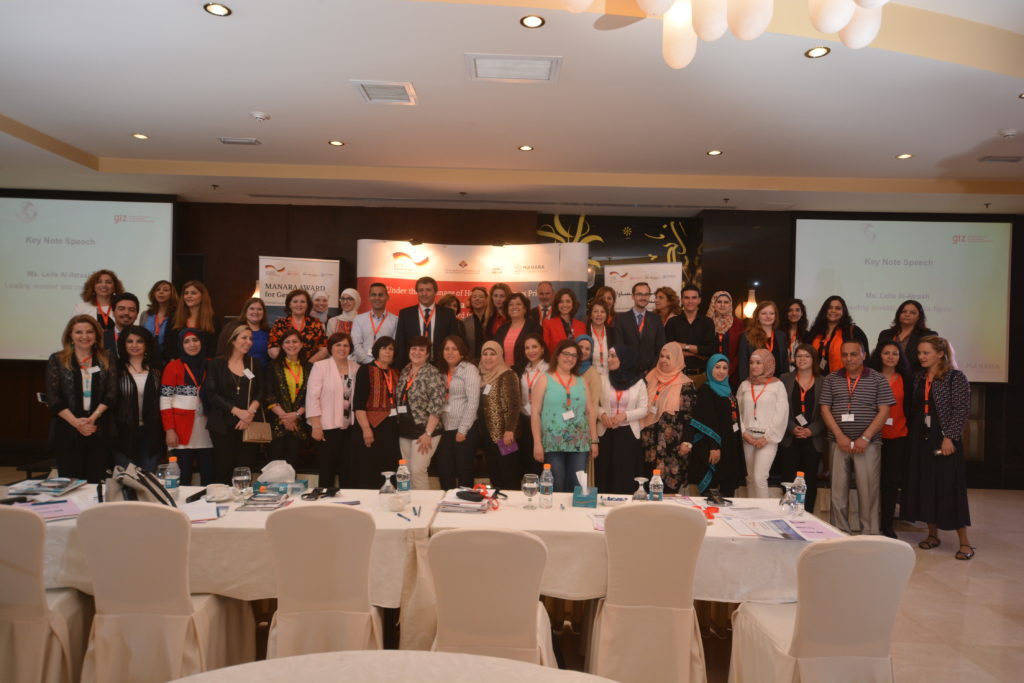Like this article? rabble is reader-supported journalism. Chip in to keep stories like these coming.
It doesn’t take many hours to travel from Palestine to Jordan, but that’s not what Palestinians say. It takes them more than eight hours despite the short distance. They have to pass through the Palestinian, Israeli and then Jordanian checkpoints. And that’s their only way to the outside world.
However, they were enthusiastic and filled with energy during their participation in Manara Award for Gender Equality. Despite the challenges that Palestinian participants face, they all come together to break the barriers of discrimination against women and gender inequality.
Under the patronage of her Royal Highness Princess Basma Bint Talal and with the presence of the minister of labour Dr. Nidal Qatamin as her representative, the Manara Regional Competition for Gender equality was held on May 15.
Three projects won and all of them were from Palestine. They competed against 60 initiatives from Jordan, Palestine, and Lebanon within three categories: political empowerment, economic participation and knowledge production. The aim objective of this competition was to shed light on positive results of initiatives geared by women of the region.
The Manara Gender Competition was conducted and funded by the Open Regional Fund, part of the German Development Cooperation (GIZ) program, in collaboration with the Jordanian National Commission for Women, and the Lebanese Center for Gender Equality, and its aim was to highlight initiatives from Jordan, Palestine, and Lebanon that were able to strengthen gender equality in their own local surroundings. A regional jury, consisting of prominent women activists, including Asma Khader, evaluated the initiatives.
For the first category, through involving them in exchange discussions and linkages with decision makers, and exposing their achievements through media and social media. For the second category “Creative ways to increase decent and gainful (self) employment of women,” the winning project was the initiative “Carpentry House for Women” implemented by the Association of Women’s Action for Training and Rehabilitation.
It has introduced women to the marketing, production and development of intelligent furniture through trainings, workshops and management skills development from Palestine. And for the third category “rethinking gender equality and women’s rights in contexts,” the winning project was the Palestinian “Initiatives for Change” led by the society of women graduates in the Gaza strip which seeks to enhance the societal participation of Palestinian female youth through capacity building and providing them with social media platforms to voice out their issues.
On the other hand, winning participants from Gaza, “Initiatives for Change,” were not able to join despite trying. The situation in Gaza has made travelling outside almost impossible in several cases. However, their achievement proves that there is no barrier is strong enough to stop them from working towards gender equality. Despite the situation in Palestine, women empowerment is at the heart of several works of activists and non-governmental organizations.
They are not deterred by the conflicts and their work establishes that women participation is the key to achieving peace.
Like this article? rabble is reader-supported journalism. Chip in to keep stories like these coming.



